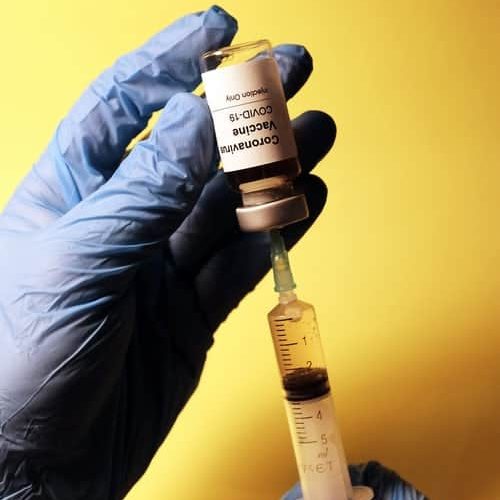The drive to administer first and second doses of COVID-19 vaccine across all of Northern Ireland’s care homes has been completed, Health Minister Robin Swann has confirmed.
Trust vaccination teams have been visiting care homes since the vaccination programme commenced in December. The last remaining homes have now been visited, the programme schedule has allowed sufficient time for outbreaks of infection to conclude and vaccination to subsequently be offered to those care homes.
The progress in vaccinating care homes has been hailed by Health Minister Robin Swann as an important milestone in the battle against COVID-19.
But the Minister has warned that measures to protect care home residents and staff from coronavirus will not be relaxed at this stage. These measures include strict infection prevention and control practices, maintenance of social distancing, use of personal protective equipment (PPE) and a programme of regular asymptomatic testing.
An important epidemiology study is now commencing which will examine the impact of vaccination on care homes in NI. The learning emerging from this work will be of significant interest.
The Minister said:“Vaccination will provide vital protection to our care home residents. It will save lives and reduce serious illness.
“My heartfelt thanks go all those involved in delivering the vaccination programme across our care homes. I very much welcome the fact that this aspect of our vaccination programme is completed.
“We will need to maintain a precautionary approach, particularly given the prevalence of the virus in the wider community and the fact that vaccination of the overall population remains at a relatively early stage.”
Deputy Chief Medical Officer, Dr Lourda Geoghegan, spelt out the key factors behind the continuing precautionary approach.
- No vaccine in history has ever been 100% effective. It is anticipated that a small minority of people, including some care home residents, may not derive full benefits from vaccination against Covid-19.
- The current evidence tells us that those who are vaccinated and protected from serious ill-health may still acquire the virus. Furthermore, definitive data is still awaited on the impact of vaccination on transmission of the virus. It cannot be ruled out that some vaccinated people could still pass the virus on to others.
- While provisional figures for the care home vaccination programme show a high rate of uptake among both residents and staff, not everyone took the opportunity to receive the vaccine.
Dr Geoghegan stated: “As the vaccination programme continues its roll-out, it’s essential that all those who receive the vaccine maintain maximum vigilance. I would encourage everyone to keep taking the same actions to protect yourself and others from infection – cutting down contacts, maintaining social distancing, washing hands thoroughly and often, and wearing a face covering.
“It is far too early for anyone to even think of dropping their guard. That message is obviously vitally important in our care homes, given the particular threat COVID-19 poses for elderly residents.
“We expect the impact of the vaccination programme on care homes to be felt over the coming weeks and months. We currently see a very welcome reduction in care home outbreaks. Vaccination will not stop all outbreaks happening, nor will it bring existing outbreaks to an immediate close.
“However, it will protect thousands of residents from serious illness and loss of life.”
Dr Geoghegan also explained: “An outbreak in a care home is defined as two or more positive COVID-19 tests within a 14 day period among residents and/or staff. By definition, an outbreak may involve a very small number of staff or residents in a care home. It may also include cases where no resident has tested positive or become ill.
“Data published on the Department’s COVID-19 Dashboard shows that a significant proportion of current outbreaks in care homes involve asymptomatic cases. This may include cases where staff who don’t have any symptoms have been identified as positive through the programme of regular testing currently undertaken in all homes.”
Source: Photo by Hakan Nural on Unsplash



